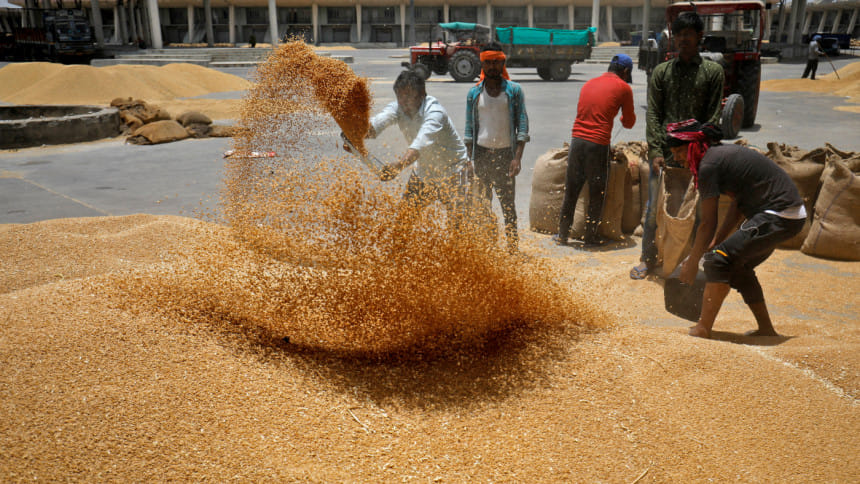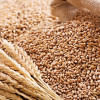India's wheat, rapeseed ravaged by rain just before harvesting

Untimely rainfall and hailstorms have battered winter-sown crops, including wheat, rapeseed, and chickpeas in India's main producing areas, delaying harvesting, industry and government officials told Reuters.
Adverse weather could limit growth in wheat production and complicate the government's efforts to build stocks.
This year's wheat harvest is critical for India, the world's biggest producer of the grain after China. Hot and unseasonably warm weather cut India's wheat output in 2022 and 2023, leading to a sharp drawdown in state reserves.
A third straight poor harvest will leave no choice for India but to import some wheat. The government has so far resisted calls for wheat imports - a seemingly unpopular step ahead of a general election early this year.
"The entire wheat crop has been flattened due to heavy rainfall and hailstorm. It was nearly mature, and we could have harvested it in two to three weeks," said Mukesh Kumar, a farmer from Uttar Pradesh, the country's largest producer of the grain.
The hailstorm will not only lead to production losses but will also increase harvesting expenses, as the crop cannot be harvested with a combine and instead need labourers, Kumar said.
Wheat production will certainly be affected, as damage is reported in all wheat-producing states, from Punjab and Haryana in the north to Madhya Pradesh in central India, said a New Delhi-based trader with a global trade house.
The government last week said wheat production could rise by 1.3 percent from a year ago to a record 112 million tons, but traders now say production will be much lower than the estimate.
"Production could be down by at least 2-3 million tons just because of one week's bad weather. Hot weather is expected in the second half of March. We don't know how much further stress it would put on the crop," said a Mumbai-based trader.
Like wheat, rapeseed and chickpeas were also cultivated mainly in northern states. Lower-than-expected rapeseed production may force the world's biggest edible oil importer to continue expensive overseas purchases of palm oil, sunflower oil and soybean oil.
Rapeseed production is expected to be at least 5 percent lower than what the industry had anticipated before the crop was damaged by rainfall, said Anil Chatar, a trader based in Jaipur in the north-western state of Rajasthan.
"Rapeseed harvesting had begun in many places, but now it will be delayed due to the rainfall," he said.

 For all latest news, follow The Daily Star's Google News channel.
For all latest news, follow The Daily Star's Google News channel. 





Comments